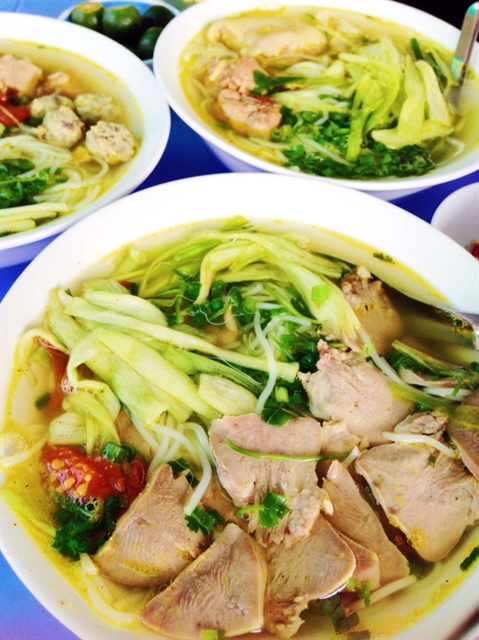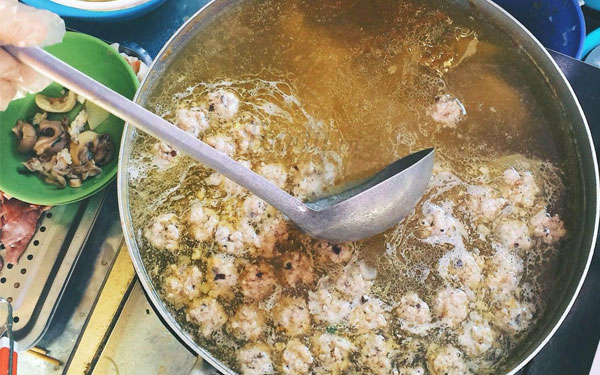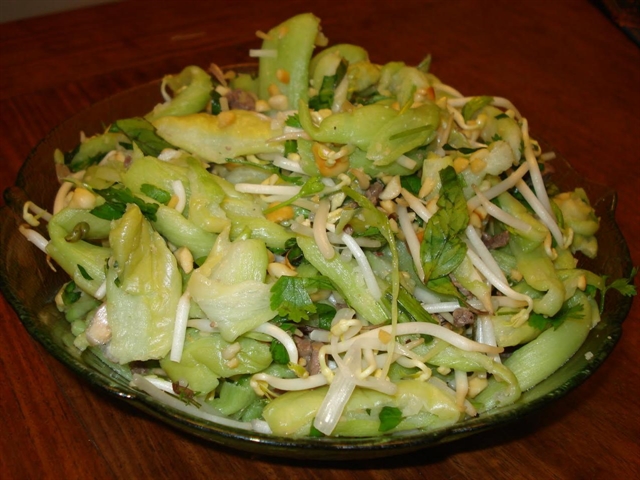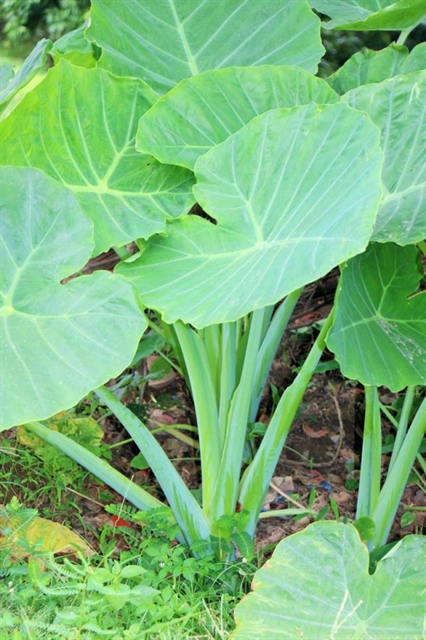By Hà Nguyễn
Writer Thạch Lam once famously wrote that Bún dọc mùng, locally known as bún bung, reflects the soul of the Việt Nam.
In his book, Hà Nội 36 Phố Phường (Hà Nội 36 Streets and Wards), he compared the aromas of this dish to music.
So it was with great excitement we decided to embark on this culinary concerto with Hồ Nguyên Ngọc, a friend from HCM City who although had heard of this particular noodle soup, was yet to sample its delights.

Kicker: Bún dọc mùng or bún bung (rice noodle-taro soup), a must-try dish of Hà Nội. — Photo toplist.vn
We invited him to to Bát Đàn Street in the capital’s Old Quarter where one of Hà Nội’s finest eateries for bún bung is located.
With tables already packed on arrival, and at least a 10 minute wait before we could be seated, these were clears signs we had chosen well, and it also gave us time to watch the chef at work.
First she puts the taro pieces in a large broth pot to simmer. They float to the surface, retaining their green colour, before removing and placed in a noodle bowl already filled with a mixture of pork leg, ribs, minced pork ball and onions.
The smells alone were enough to make us want more, before we’d even tasted our first mouthful.
”My mouth is watering,” said Ngọc, telling me that he could eat two bowls at the same time.
He wasn’t lying. Not long before bowl number one had arrived it was devoured at top speed, despite the temperature. Bowl number two was quickly ordered.

Kicker: A pure and sweet broth cooked from pork bones helps to make the dish more tasty. — Photo toplist.vn
Cooking up this particular treat was Nguyễn Thị Hải who, by her own admission, said making the dish is no easy task.
The taro should be peeled carefully and mixed with salt for half an hour then washed to make sure the texture remains crispy after cooking. Maybe our host was parting with too many of her trade secrets as she said this technique is often not done by her rivals.
Pork is clearly the meat of choice, but other cuts such as boiled tongue or trotters are also available on request. We could see Ngọc, our guest, was tempted, but after too filling bowls he decided to try other varieties another time.
It is not just the capital you will find taro. In the central province of Nghệ An, professional cook Phan Thị Ngọt is famed for her version.
She said: “The taro is available in our Quỳnh Đôi Village so I often use it to make the taro salad to eat in summer to cool down heat and salted taro to eat in winter.”
Ingredients for the taro salad include salt, sugar, garlic, chili, roasted peanuts and lemon leaves. The taro should be peeled out its shell then cut it into pieces. Not too think, and not too thin, before being dried under sunlight or in a gentle breeze until they wilt.
“By doing this you ensure the taro is crispy,” Ngọt said.

Kicker: Taro salad not only makes dinner's meal more appetite but also helps to cool down summer heat very effectively. — Photo congthucmonngon.com
Once the elements have done their job, again the taro pieces should be mixed with salt and the other ingredients.
A refreshing salad in the summer, but also one that contains medicinal benefits.
“The salad helps to treat ailments such as colds and many others,” she said, noting that taro is also very good to help people stay slim.
Herbalist Trịnh Minh, from the Quỳnh Đôi Traditional Medicine Centre, said the taro is rich in phosphorus, potassium, calcium, magnesium and particularly rich of fibre to effectively help those patients with high lipid and cholesterol in their intestine.

Kicker: Taro is grown widely in Asia such as India, Việt Nam and other countries. — Photo baomoi.com
“I often use taro as one of herb remedies to treat measles and fever for children and indigestion for adults,” Minh said, adding that he agreed with writer Thạch Lam that bún dọc mùng really is not only food for the soul, but also one to help ensure a healthy way of living. — VNS
OVietnam